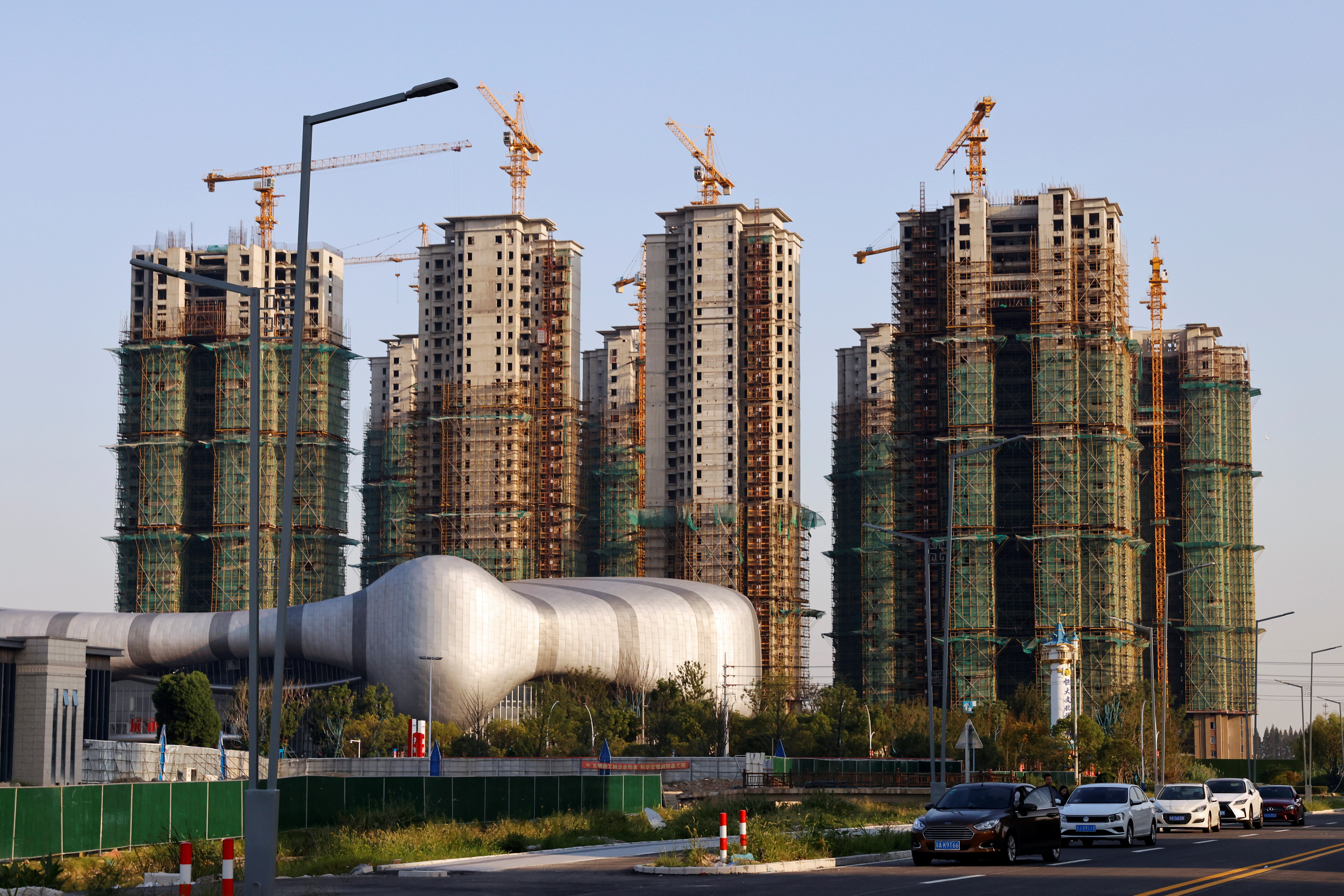The Evergrande crisis: 4 things to know about the Chinese property developer, and whether it'll impact Singapore's property market


Over the past one week, the spotlight has been on Evergrande, the second-biggest property developer in China.
From videos of home buyers and creditors protesting at their headquarters to reports of its debts, it's a real estate disaster in the making.
Here are some things to know about the Evergrande crisis.
Founded by Hui Ka Yan in 1996 in Guangzhou, Evergrande grew to be the second-biggest developer in China.
As a real estate developer, the company website states that it owns more than 1,300 projects in 280 cities in China.
But the group doesn't just deal with real estate; it's also involved in other businesses, including electric vehicles and media production.
However, the company had a liquidity scare last year.
According to Bloomberg, it reportedly sent a letter to the provincial government warning that "payments could cause a liquidity crisis and potentially lead to cross defaults in the broader financial sector".
This was prevented when a group of investors "waived their right to force a US$13 billion repayment".
Since then, the company has warned that it may not be able to pay up its debts of more than US$300 billion in liabilities.
This includes interest payments of US$83.5 million on its bonds due this Thursday (Sept 23), and another US$47.5 million payment due on Sept 29.
Evergrande had been expanding through leveraging since the beginning.
With access to loans, it's been able to take on lots of projects, with the risks transferred to banks. It is hoped that doing so will reap profits that will be used to fund more projects, and the cycle repeats.
However, as the debt and interest grew, it couldn't keep up with its debts. The company started missing payments, construction was stopped and warned that it may not be able to pay its debts.

This comes as the Chinese authorities introduced the "three red lines" policy in August 2020 to restrict borrowing for developers.
Now, it reportedly owes money to around 171 domestic banks and 121 financial firms.
READ ALSO: With Gucci bags and Dyson appliances, Evergrande wooed retail investors
As the second-biggest property developer in China, Evergrande is a massive, interconnected company.
Should it default, companies doing business with them stand to suffer huge losses. Banks and creditors will also be more cautious about lending money to other companies.
So a lot of people are hoping that the government will bail it out to prevent social unrest.
But there's a chance that the government may not do so, as it would be seen as encouraging overborrowing.
The Evergrande case may instead serve as an example for other companies to restrain themselves from taking more loans.
The editor-in-chief of the state-backed Global Times even said that Evergrande should save itself instead of depending on a government bailout.
According to a CNA article, this crisis most likely won't have much global impact, save for some market turbulence.
So even if there's a spillover effect into other Asian countries like Singapore, the impact will be indirect. It's also too soon to tell the scale of this spillover effect.
On the other hand, other property developers in China, including foreign ones, may see some ripple effects due to this crisis.
We may also see more developers being affected by the stricter borrowing regulations, just like what happened with CDL's investment in China.
In an effort to grow its presence in the country, CDL took a stake in China-based Sincere Property Group in 2019.
However, Sincere faced financial difficulties and bankruptcy claims after the "three red lines" policy was introduced, leading CDL to book an impairment loss of $1.78 billion on its investment earlier in February.
Eventually, the Singapore-based developer sold its stake for US$1 in September.
We probably won't see a crisis of such a scale happening in Singapore, given that the government has introduced a slew of cooling measures to stabilise the property market.
This includes increasing the developer ABSD to slow down the rate developers were bidding and buying for land for development.
At the same time, we've seen a developer in Singapore that had gone bust before, leaving behind two unfinished condos. Laurel Tree and Sycamore Tree were supposed to TOP in 2016 but weren't completed by then.
Construction stalled in 2018 when there weren't funds left in the project accounts, leaving behind debts owed to contractors and creditors as buyers could lose their deposits.
 Sycamore Tree condo is still under construction. PHOTO: Straits Times/Syaza Nisrina
Sycamore Tree condo is still under construction. PHOTO: Straits Times/Syaza NisrinaFast forward to 2020, the court has ruled that homebuyers of Sycamore Tree will have priority over contractors and creditors to get claims.
Because of cases like this, the advice has always been that buyers should only buy from big, reputable developers with a track record, as smaller developers tend to have less access to capital.
In any industry, there's always the assumption that big companies have more access to capital and are less likely to run into financial problems.
But we can't say that they are totally immune to liquidity problems.
Just take the example of Greatearth, a reputable contractor that pulled out of five BTO projects and two public projects due to financial difficulties last month. It then announced in early September that it would begin winding up the business.
With over 150 years of heritage and involvement in projects such as Marina Bay Sands (hotel), it's a big contractor that we didn't expect to go bust.
This article was first published in 99.co.